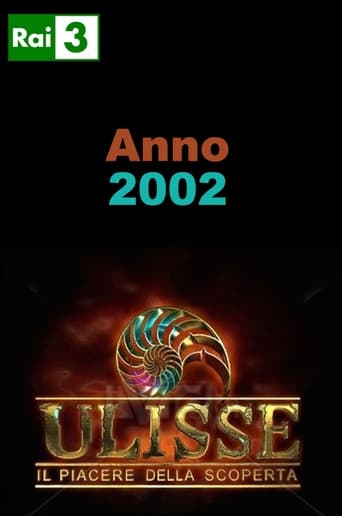Ratings
Series Details
Seasons: 23
Total Episodes: 287
Creators: Piero Angela , Alberto Angela
Networks: Rai 1 , Rai 3
Status: Returning Series
First Air Date: Apr 7, 2001
Recent Air Date: Oct 5, 2023
Run Time: m
In Production: Yes
Original Language: Italian
Age Rating: NR
Website: Link
Production Companies: RAI
Genres
Keywords
People Rated This
None of your friends have rated this title yet
Watch Ulisse. Il piacere della scoperta
Sorry! We currently don't have any streaming links for this tv show yet :(
Check back soon! We add new episodes every day!
Synopsis
No Synopsis for this season yet
Episodes
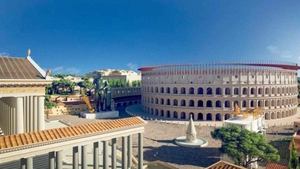
Episode 1
06 April 2002 - Lo splendore di Roma
Ulisse recounts the "Splendor of Rome", when the empire reached its maximum power and territorial extension in the second century. The land borders ran for over 10 thousand km from Scotland to the borders of Iran, from the Sahara to the North Sea, the Caspian Sea and the Persian Gulf. The driving force of everything was Rome, located exactly at the center of the Empire, with almost 1.5 million inhabitants. It was the most populous city in all of Antiquity. It had 423 neighborhoods, 1400 fountains, 11 colossal baths, 40 triumphal arches, 100 temples, more than 4000 large statues, 28 libraries.

Episode 2
13 April 2002 - La forza dell'Impero
Ulisse's journey to the Roman Empire continues to discover its military strength, that is, the violent and implacable arm of its legions. Thanks to the best reconstructions of the experts, we will follow the armies on the march, we will understand how they fought, we will discover who his soldiers were and how far they went. We will see how Rome imposed itself through the skill of its generals and engineers, but also through its ability to export a model of civilization. In this regard, we will try to understand why the Romans managed to extend over such a large surface area and above all why their culture, so advanced and so successful, was adopted by all the populations of Europe and the Mediterranean.
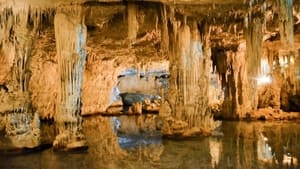
Episode 3
20 April 2002 - Ventimila leghe sottoterra
Ulisse will dedicate his third appointment to the underground world, making a journey beneath the earth's crust. In fact, a small invisible and often fantastic universe exists beneath our feet. In these "twenty thousand leagues underground" Ulisse will explore the world of caves, observing speleologists in their explorations and visiting surprising sites such as the Wieliczka rock salt mine in Poland. Alberto Angela visited the depths of this mine which has been exploited for millennia and which today presents incredible settings: enormous caves, statues carved in salt, a church and even a concert hall with immense chandeliers all made with salt.

Episode 4
27 April 2001 - L'aria
The protagonist of this episode is the air. You cannot see it, it has no smell or taste, but it is the most abundant element on the earth's surface and is crucial for our survival. In fact, air, by penetrating our lungs, provides our body with oxygen that allows us to move, speak and even think and profoundly influences plant and animal life. Alberto Angela will take us on a long journey inside the air, making us discover the most surprising aspects of this substance. On board a vintage sailing ship, Alberto Angela will explain to us how the use of wind has changed the history of humanity, from the great geographical discoveries to the latest technological evolutions of racing catamarans. We will discover the extreme limits of life without air: the possibility of remaining without breathing underwater for up to half an hour, as Umberto Pellizzari, the freediving record holder, will explain to us.

Episode 5
04 May 2002 - I tesori degli Zar
Alberto Angela went to the Kremlin and the palaces of St. Petersburg to tell us the story of the tsars who governed Russia between the eighteenth and twentieth centuries. It is an opportunity to visit the splendid Hermitage Palace, where works of art, jewels, thrones, crowns, weapons and sumptuous carriages are kept. We will admire one of the summer residences of Tzarskoje Selo, an immense palace located in a vast park with large trees, ponds, imposing statues, little bridges, where Tsarina Elizabeth loved to spend much of her time. This palace also hid another wonder, now lost: a room whose walls were entirely decorated with panels made of various types of amber and which suddenly disappeared during the last war. Through the documents, the places, the objects collected in the collections, Ulisse makes us discover the life of the last tsars from Peter the Great to Nicholas II: the loves, the pomp, the conquests, but also the plots, the killings and the brutal repression.
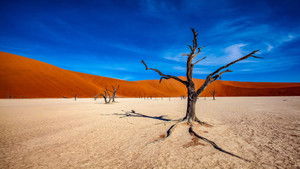
Episode 6
11 May 2002 - Viaggio nel nulla
Work on this episode resumed after the attack and kidnapping suffered by Alberto Angela and the Ulisse crew by a group of armed men in the Niger desert. Only part of the footage was saved and the episode will begin from these images, that is, from the Sahara, the largest desert in the world. We will also see some shots of the last camp before the kidnapping. The program will take us to the most extraordinary deserts in the world: from Libya to Peru, from Namibia to the Egyptian desert. These lunar landscapes, devoid of life, actually hide many precious things: diamonds, finds from ancient civilizations, mummies, cave paintings, prehistoric tools. And also life forms that manage to survive in extreme conditions: in some cases even lions and elephants. Alberto Angela will visit the highest dunes and incredible rock formations of the Sahara, inhabited millennia ago by ancient populations, when instead of the desert there were rivers and lakes.

Episode 7
18 May 2002 - In viaggio verso l'ignoto
The protagonists of this episode of Ulisse are men who have changed the boundaries of nations, continents, and the known world, who have been able to broaden the mental and cultural horizons of their era. They are merchants, scientists, adventurers, conquerors and heroes. Alberto Angela from the headquarters of the most prestigious geographical institutes in the world - the Royal Geographical Society of London and the Geographical Society of Villa Celimontana in Rome - will tell us about the exploits of those who dared to challenge the seas and oceans to discover new worlds: from the Vikings to Christopher Columbus, from Amerigo Vespucci, to Captain Cook killed by natives during his 3rd round the world trip. We will also see how an entire people, the Polynesians, managed to colonize the largest ocean, the Pacific, without compasses or maps.
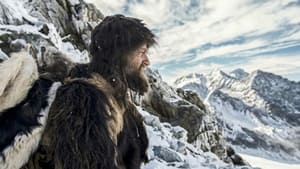
Episode 8
01 June 2002 - L'odissea dell'uomo tra i ghiacci
Ulisse offers his listeners a journey through time to tell the story of prehistoric man who populated Europe in a period ranging from approximately thirty-five thousand to twenty-five thousand years ago, from the Neanderthals to the glaciations. In the first episode, the program retraced the group life, hunting, affections, daily problems of a small tribe of Neanderthals up to the dramatic encounter with Homo Sapiens Sapiens, who migrated to Europe from Africa in that period. A fatal encounter for the Neanderthal, who became extinct within a short time, leaving his territories to this new living species: the species from which we all descend, and which was then to give rise to the great cultures of our history. The story tells a small group of men who lived in a period following the Neanderthals, about ten thousand years later, in the ice age.
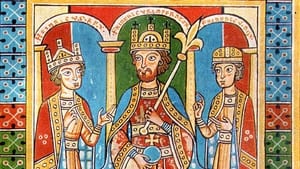
Episode 9
08 June 2002 - Viaggio nel medioevo
Ulisse proposes a journey to the Middle Ages. Alberto Angela traveled to medieval villages, abbeys and castles to discover the daily life of a thousand years ago: work, battles, faith, sieges, masterpieces of art, torture, the terrible scourge of diseases... ."The Black Death". Through filmed reconstructions, created with the collaboration of a cultural association from Bevagna, we will discover life in the villages and artisan workshops, we will see the homes of the poor, the work of the farmers, the taverns, the love potions, the entertainment of the rich , magic and also the many medieval inventions: from textile machines to glasses, from the compass to underpants. Alberto Angela also shows how the weapons of the time worked, what remains of the Crusader castles today and how people lived inside a princely residence. And again, we will talk about Maritime Republics and a fabulous and distant empire.
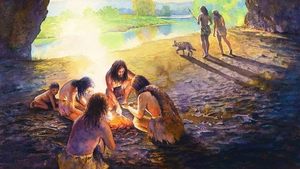
Episode 10
30 November 2002 - La straordinaria storia dell'uomo (prima parte)
With Alberto Angela we will retrace the long history of our species, which starting from very primitive beings led to modern man. It will be a story created not only with finds and exploration of the sites, but also with accurate reconstructions of the hominids who followed one another over the course of five million years: Austrolopithecines, Homo habilis, Homo erectus, Neanderthals, Cro-magnons, etc. For the first time the entire gallery of our most distant ancestors will be visualized thanks to fiction and computer processing. The scenes with actors were filmed in the African savannahs, in the same places where human evolution took place: under the guidance of experts, in particular Prof. Yves Coppens of Paris, one of the most authoritative researchers in human paleontology, they the appearance of these primitive hominids and also scenes of their life have been reconstructed, just as it is possible today to reconstruct them based on all the studies done.

Episode 11
07 December 2002 - La straordinaria storia dell'uomo (seconda parte)
With Alberto Angela we will retrace the long history of our species, which starting from very primitive beings led to modern man. It will be a story created not only with finds and exploration of the sites, but also with accurate reconstructions of the hominids who followed one another over the course of five million years: Austrolopithecines, Homo habilis, Homo erectus, Neanderthals, Cro-magnons, etc. For the first time the entire gallery of our most distant ancestors will be visualized thanks to fiction and computer processing. The scenes with actors were filmed in the African savannahs, in the same places where human evolution took place: under the guidance of experts, in particular Prof. Yves Coppens of Paris, one of the most authoritative researchers in human paleontology, they the appearance of these primitive hominids and also scenes of their life have been reconstructed, just as it is possible today to reconstruct them based on all the studies done.

Episode 12
14 December 2002 - Lo splendore di Roma
Ulisse recounts the "Splendor of Rome", when the empire reached its maximum power and territorial extension in the second century. The land borders ran for over 10 thousand km from Scotland to the borders of Iran, from the Sahara to the North Sea, the Caspian Sea and the Persian Gulf. The driving force of everything was Rome, located exactly at the center of the Empire, with almost 1.5 million inhabitants. It was the most populous city in all of Antiquity. It had 423 neighborhoods, 1400 fountains, 11 colossal baths, 40 triumphal arches, 100 temples, more than 4000 large statues, 28 libraries.
Crew
| Department | Role | Name |
|---|---|---|
| Directing | Director |

Luca Romani
|
| Department | Role | Name |
